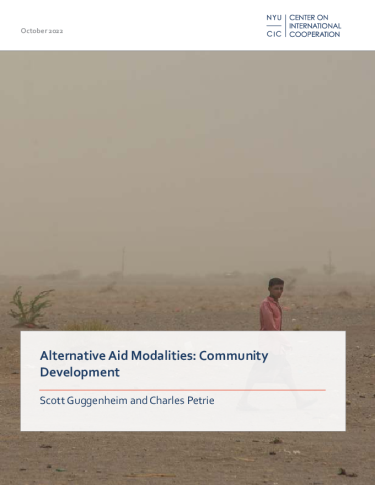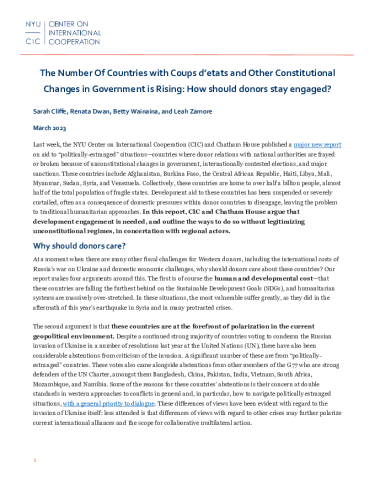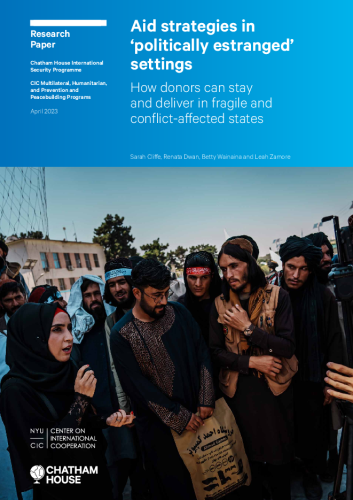
What Can the Peacebuilding Commission Do to Support National Prevention Strategies?
This report explores what the Peacebuilding Commission (PBC) can offer that is of added value for member states to strengthen their national prevention strategies.

Fragility, conflict, and violence (FCV) threaten the stability of entire regions, undermining development, peace, and security. Many countries facing FCV are also burdened with high debt and weak governance structures, making them particularly vulnerable to economic and social crises. The multilateral community must find ways to provide sustainable support to these countries and prevent further destabilization.
By bringing together research on financing, governance, and multilateral reform, CIC aims to promote a comprehensive approach to stability and development in fragile settings.

This report explores what the Peacebuilding Commission (PBC) can offer that is of added value for member states to strengthen their national prevention strategies.

Economic sanctions and restrictions on development aid in fragile and conflict-affected states have become an increasingly prominent part of the international toolkit for dealing with regimes that violate international norms and rules or are beset by conflict.

This analysis focuses on two major areas, based on our recently-published report with Chatham House on the "forgotten crises" for the populations of countries living under coups d’etats, other constitutional lapses and abuses leading to sanctions. These areas are: (1) why should donors care in this current moment, and (2) what has been new in our thinking about the major challenges and solutions for how to work in these contexts?

NYU Center on International Cooperation and Chatham House publish a new study, which draws together diverse experiences of situations where relations between donors and national authorities are estranged, as well as examples from other relevant fragile settings, to show how donors and multilateral organizations can design and deliver some forms of development assistance to meet urgent needs, prevent further social and economic disruption and increase resilience, without legitimizing unlawful regimes or fueling further conflict, human rights abuses or large-scale corruption.
Subscribe to our newsletter and receive regular updates on our latest events, analysis, and resources.
"*" indicates required fields